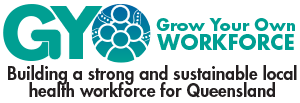Publications
- Health workforce
- Rural & remote workforce
- Aboriginal & Torres Strait Islander workforce
- Disadvantaged workforce
- Younger workforce
- Partnerships & collaboration
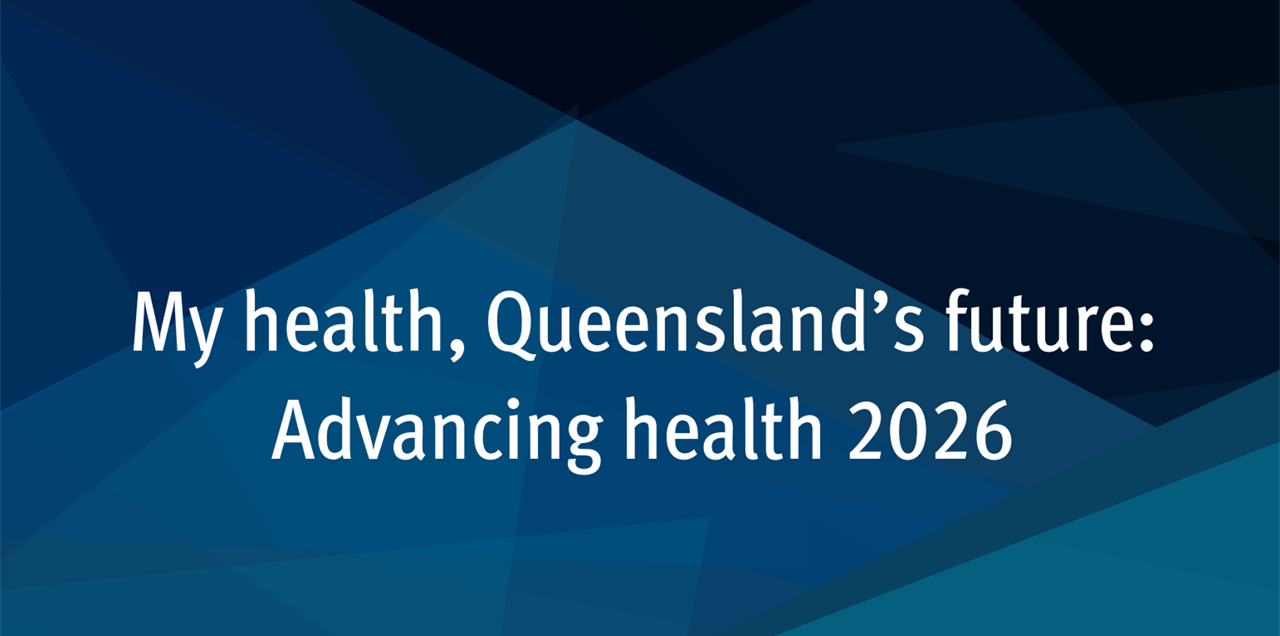
My health, Queensland's future: Advancing health 2026
This Queensland Government strategy articulates a 10-year vision and strategy for the state’s health system. The vision is that Queenslanders will be among the healthiest people in the world by 2026. Aspirations for how the Queensland health system can support Queenslanders to maintain and improve health and wellbeing into the future are outlined.
Advancing health service delivery through workforce:
A strategy for Queensland 2017-2026
This strategy provides a strategic pathway for building the system necessary to support, strengthen and enable the health workforce to deliver sustainable, consumer-centred health care into the future.
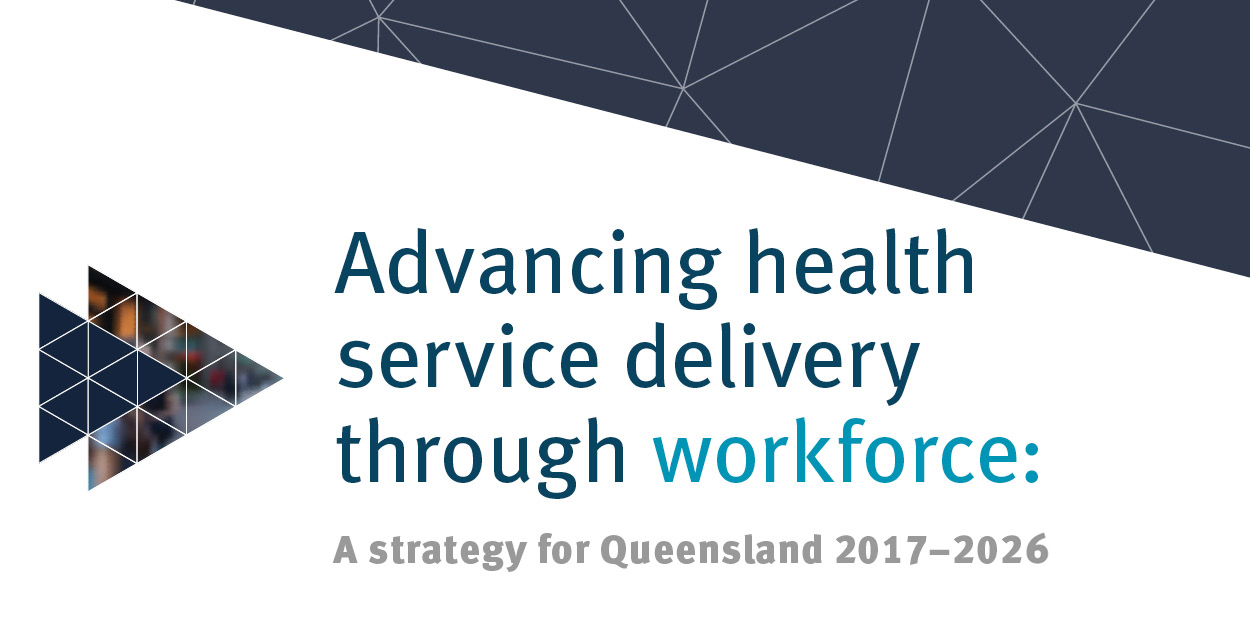

Advancing health service delivery through workforce:
A strategy for Queensland 2017-2026
This strategy provides a strategic pathway for building the system necessary to support, strengthen and enable the health workforce to deliver sustainable, consumer-centred health care into the future.
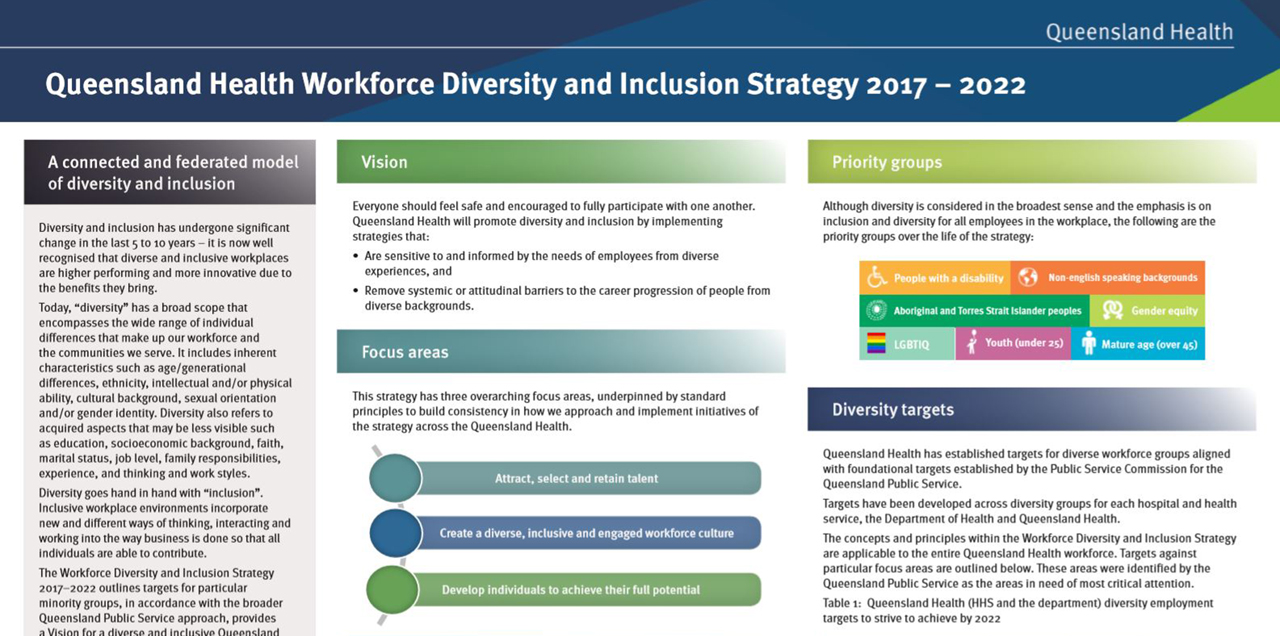
Queensland Health Workforce Diversity and Inclusion Strategy 2017 – 2022
This strategy outlines outlines targets for seven minority groups, provides a Vision for a diverse and inclusive Queensland Health and sets out specific focus areas and principles that underpin the achievement of the Vision.
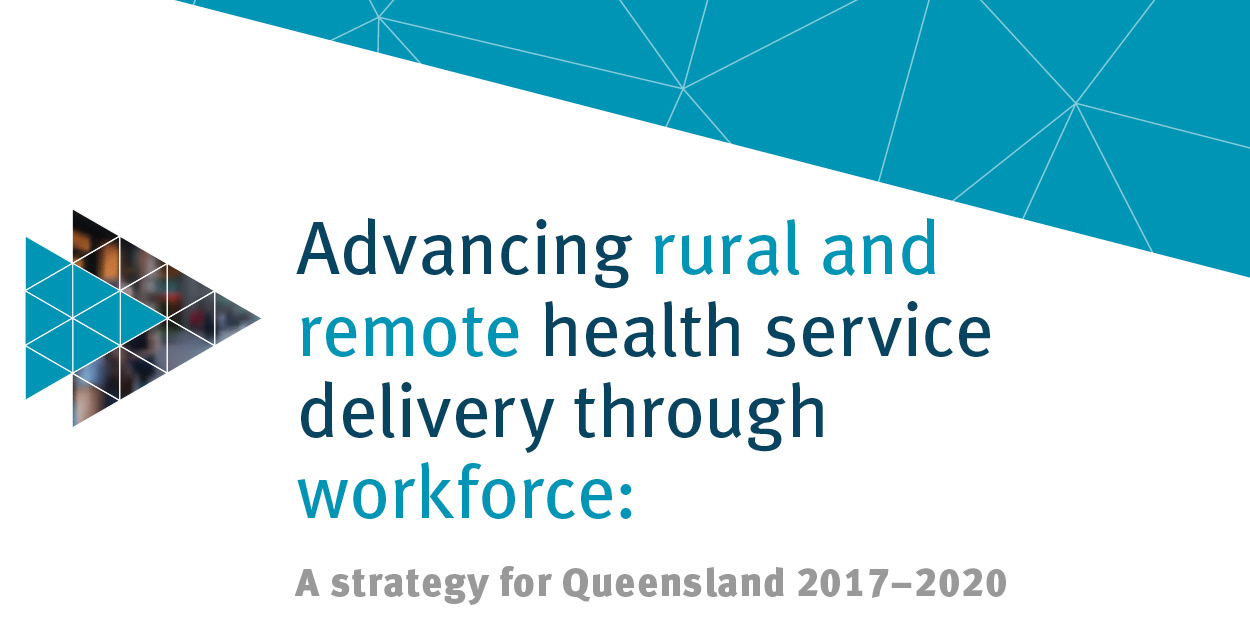
Advancing rural and remote health service delivery through workforce: A strategy for Queensland 2017-2020
This strategy outlines priorities to build a sustainable health workforce in rural and remote Queensland, to improve health outcomes for Queenslanders in non-urban areas of the state, particularly the Torres and Cape York, North West, Central West and South West Queensland Hospital and Health Services.
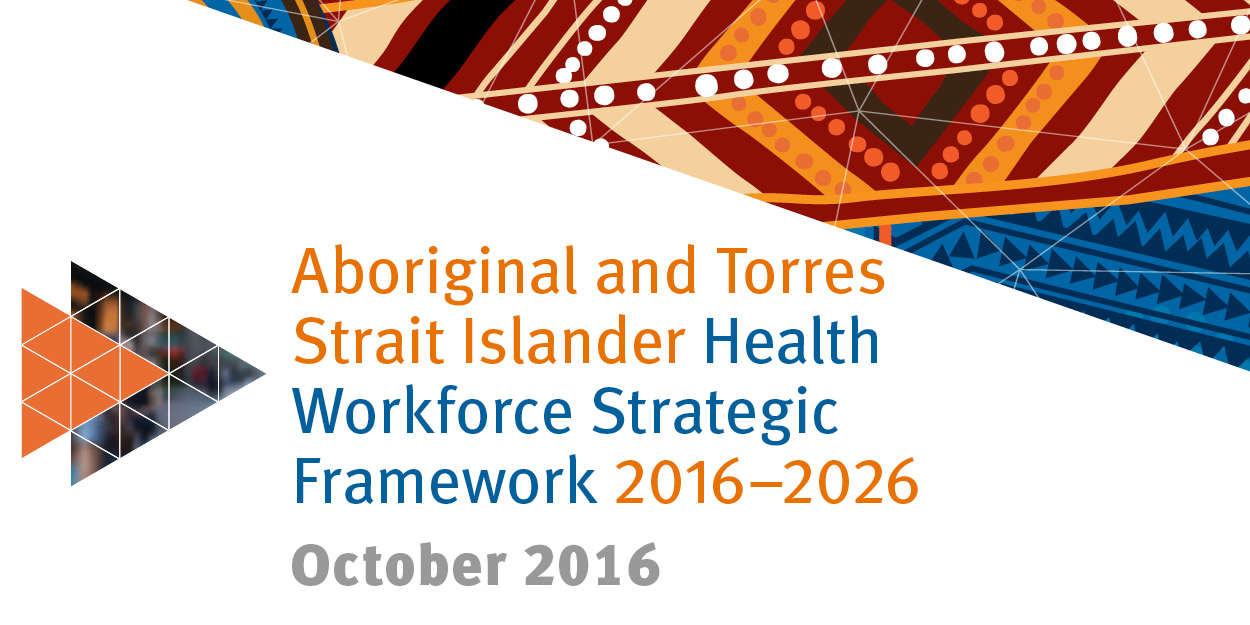
Aboriginal and Torres Strait Islander Health Workforce Strategic Framework 2016-2026
This framework is Queensland Health’s key response to the whole-of-Queensland government strategy, Moving Ahead – A strategic approach to increasing the participation of Aboriginal people and Torres Strait Islander people in Queensland’s economy 2016-2022. It aims to increase the Aboriginal and Torres Strait Islander workforce opportunity across the Queensland Government health sector in clinical, non-clinical and leadership roles.
VET retention in remote Aboriginal and Torres Strait Islander communities
This report examines five unique vocational education and training (VET) programs in remote areas and identifies how retention and completion can be improved and what other indicators of success are important outcomes of training in remote communities.
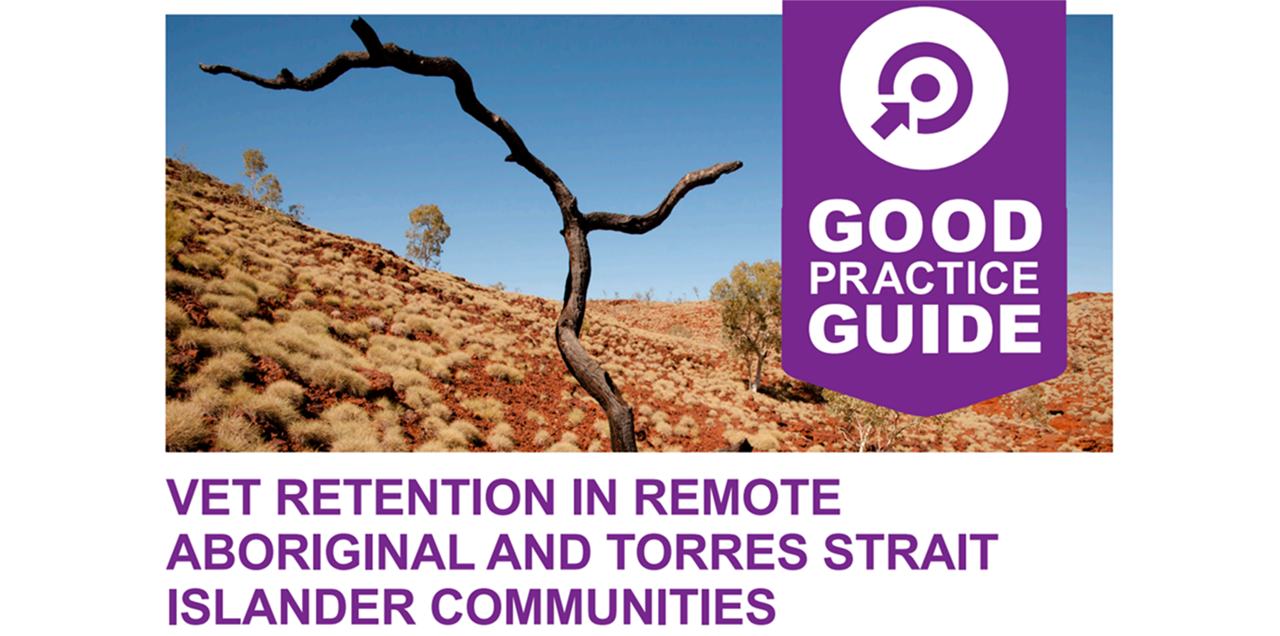

VET retention in remote Aboriginal and Torres Strait Islander communities
This report examines five unique vocational education and training (VET) programs in remote areas and identifies how retention and completion can be improved and what other indicators of success are important outcomes of training in remote communities.
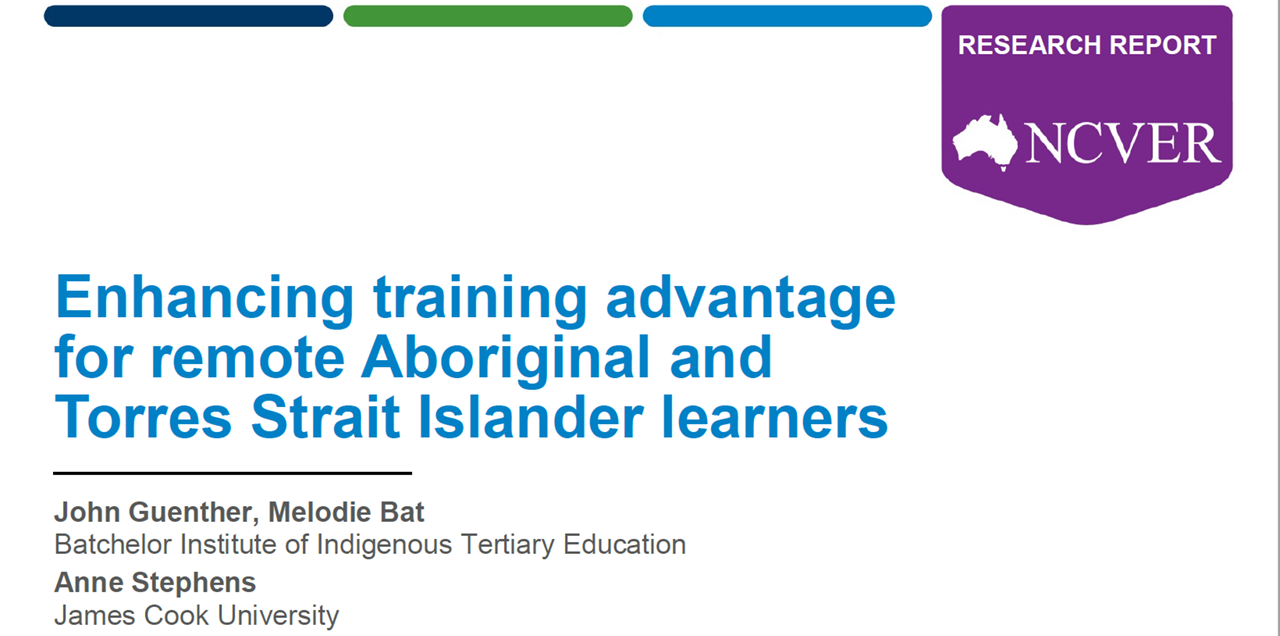
Enhancing training advantage for remote Aboriginal and Torres Strait Islander learners
Aboriginal and Torres Strait Islanders in very remote parts of Australia are increasingly participating in vocational education and training (VET); however, completion rates remain low and employment outcomes are not improving. This project identifies how retention and completion can be improved and what other indicators of success are important outcomes of training in remote communities.
National Aboriginal and Torres Strait Islander Health Workforce Strategic Framework 2016-2023
This framework provides a guide to assist the planning, prioritisation, target setting monitoring, and reporting of progress in increasing Aboriginal and Torres Strait Islander health workforce capacity and capability building.


National Aboriginal and Torres Strait Islander Health Workforce Strategic Framework 2016-2023
This framework provides a guide to assist the planning, prioritisation, target setting monitoring, and reporting of progress in increasing Aboriginal and Torres Strait Islander health workforce capacity and capability building.
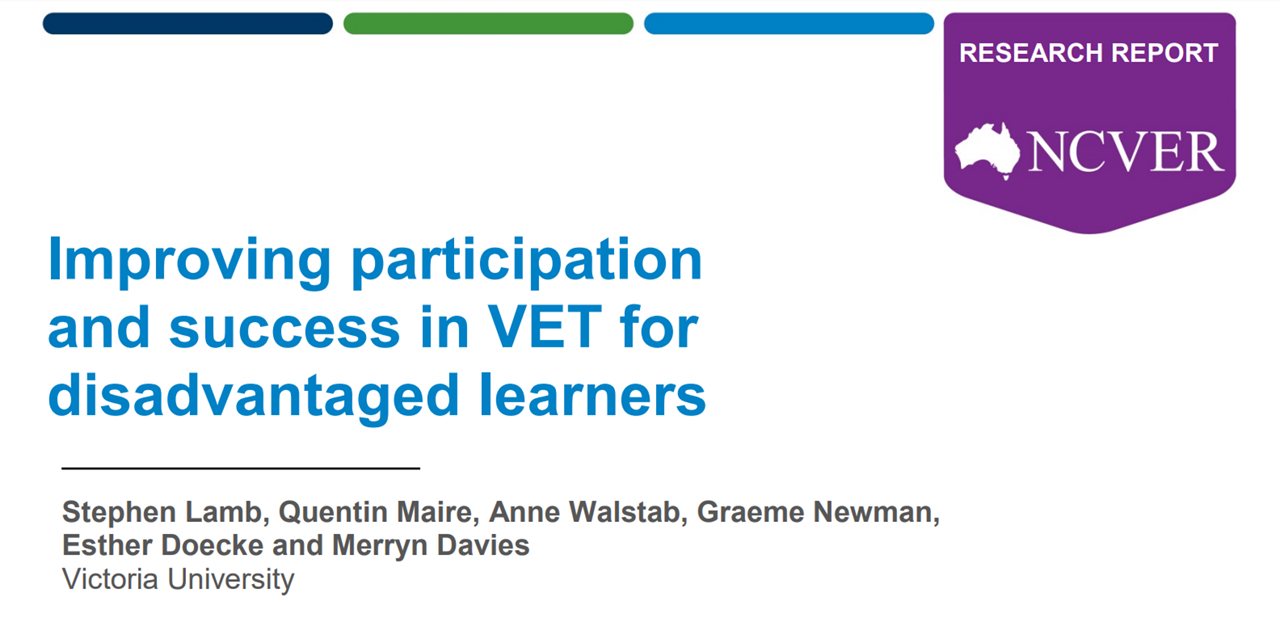
Improving participation and success in VET for disadvantaged learners
This research explores the strategies and practices in place at TAFE, private and community education providers who achieve high participation and completion rates with disadvantaged learners.
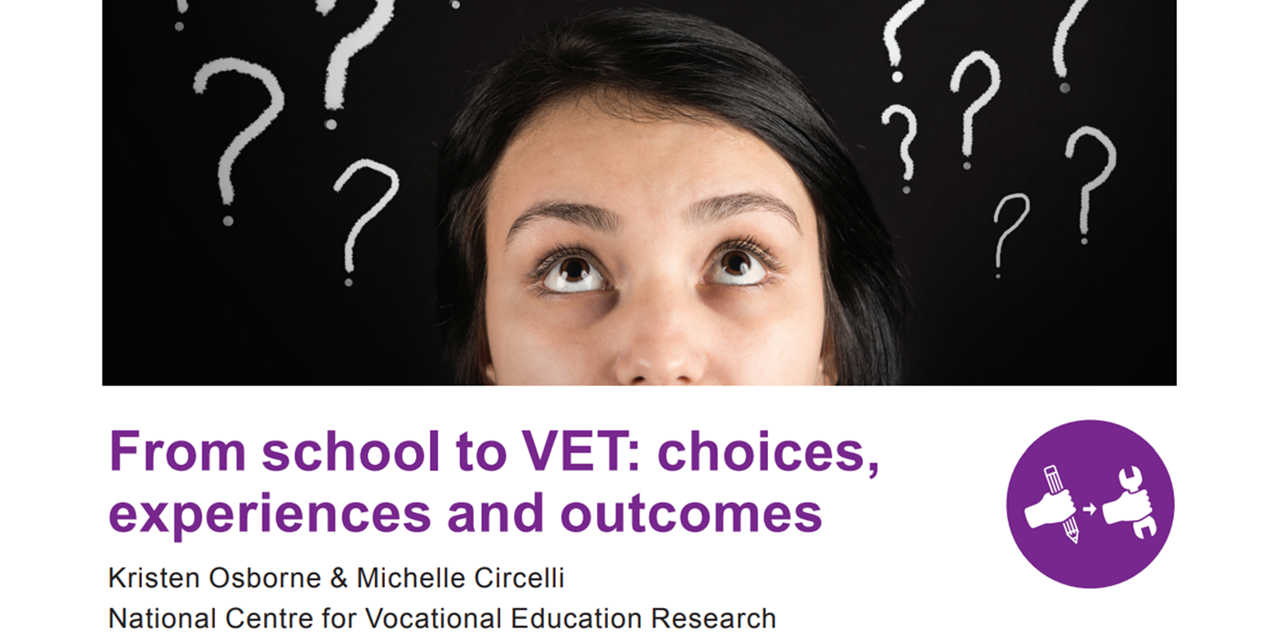
From school to VET: choices, experiences and outcomes
This publication brings together recent research commissioned or undertaken by NCVER in the transition of school students into vocational education and training (VET), their experiences and their outcomes. It explores what influences young people to undertake VET post-school, the factors that support them to complete VET and their outcomes following participation in VET.
Engaging young early school leavers in vocational training
This research looks at why young early school leavers are not considering vocational education and training (VET) as a means of gaining skills, and why, if they do start a VET course, some disengage and drop out.
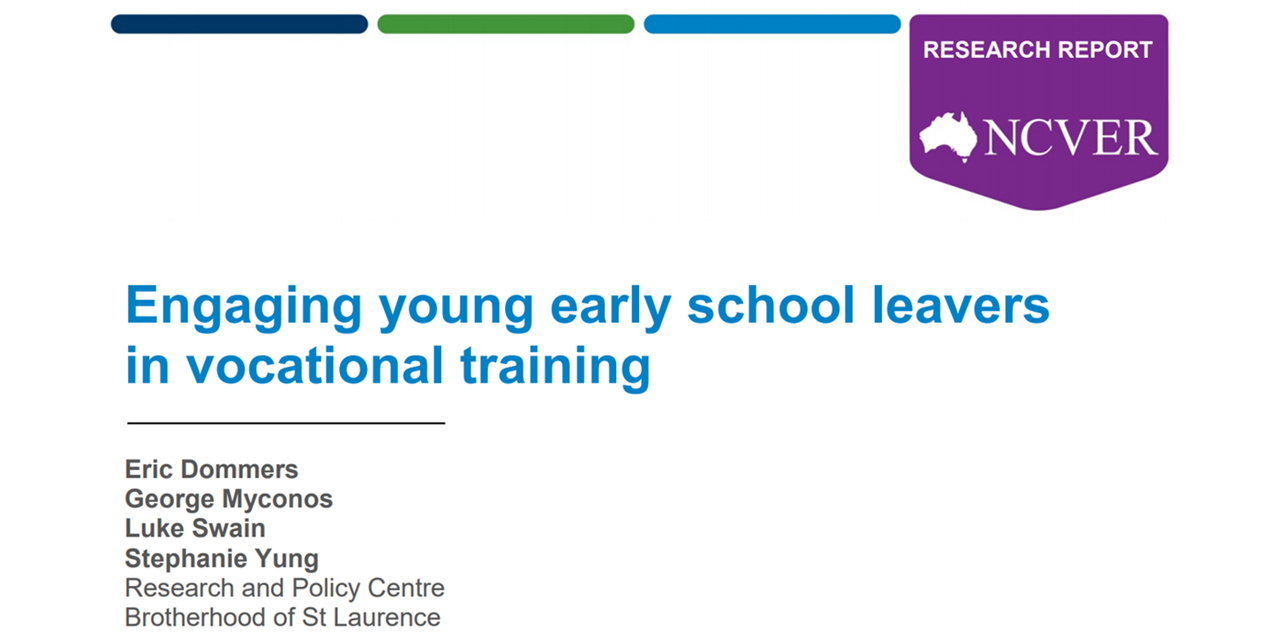
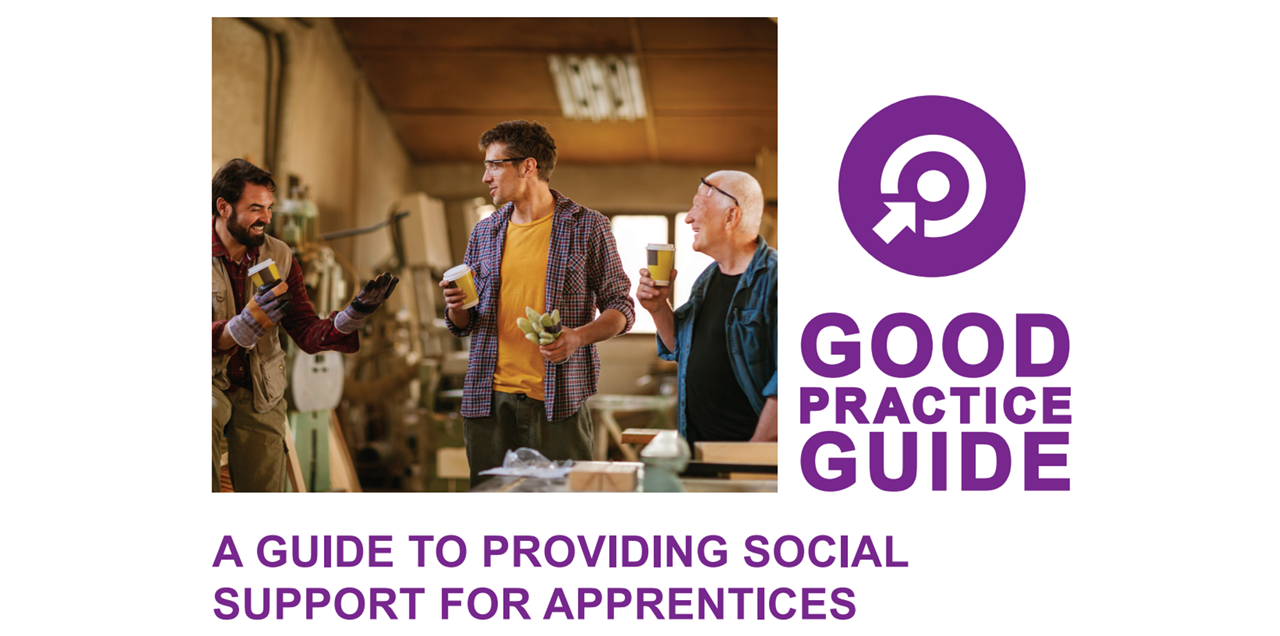
A guide to providing social support for apprentices: good practice guide
This good practice guide is designed to help employers think about and provide work-based social support structures that may contribute to the health and wellbeing of young apprentices as they transition to the world of work.
Work-based education in vet
The inclusion of work as a distinct component of an education program is a key element of a successful vocational education and training (VET) system. This summary explores available literature with the aim of identifying the benefits
and challenges associated with work-based education experiences. It also presents a range of best practices for the provision of work-based education.
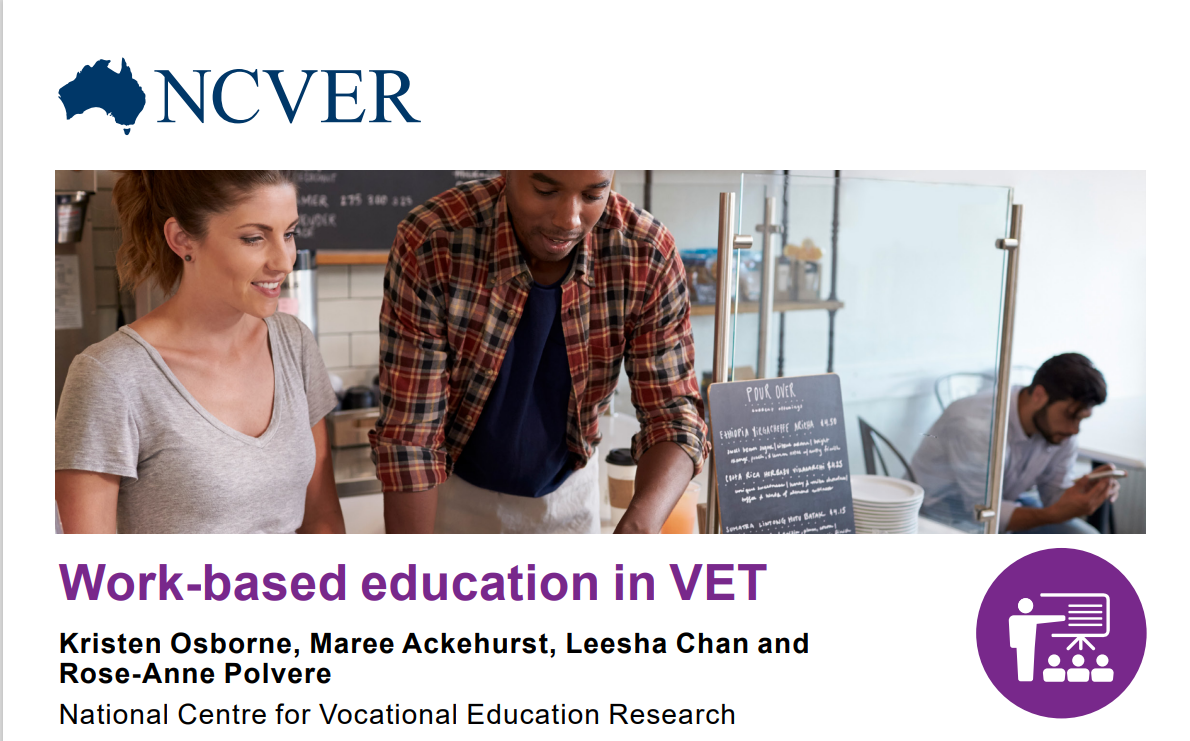

Developing and sustaining successful partnerships between employers and training providers: good practice guide
This good practice guide provides insights into developing and sustaining successful partnerships and identifies the potential benefits and challenges of these partnerships. It provides valuable information for both training providers and employers seeking to establish or strengthen a partnership arrangement.
